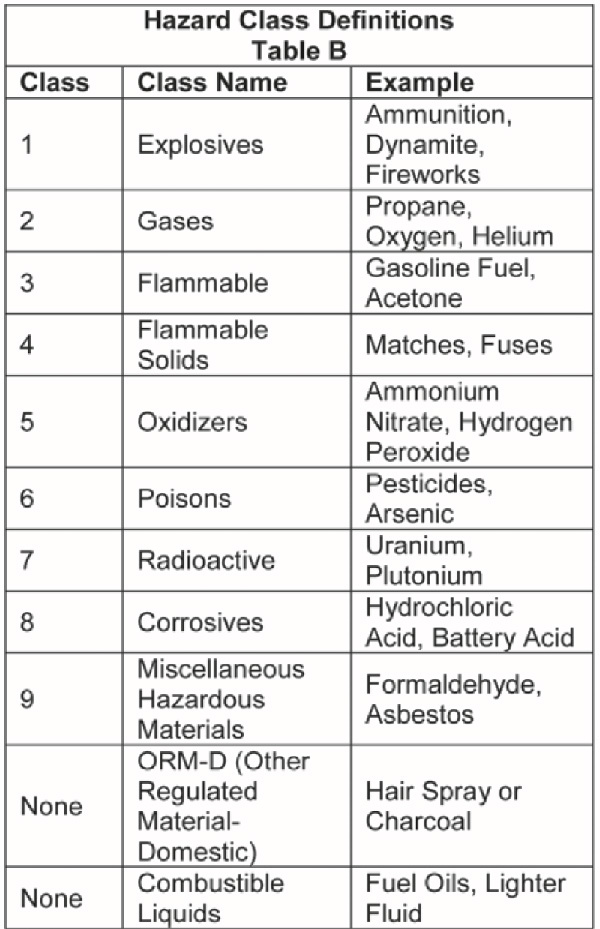Note: Your are not logged in. We can not keep your scores or track your progress unless you Register and Log In
9.7.5 – Required Notification
The National Response Center helps coordinate emergency response to chemical hazards. It is a resource to the police and firefighters. It maintains a 24-hour, toll-free line listed below. You or your employer must phone when any of the following occur as a direct result of a hazardous materials incident:
- A person is killed.
- An injured person requires hospitalization.
- Estimated property damage exceeds $50,000.
- The general public is evacuated for more than one hour.
- One or more major transportation arteries or facilities are closed for one hour or more.
- Fire, breakage, spillage or suspected radioactive contamination occurs.
- Fire, breakage, spillage or suspected contamination occur involving shipment of etiologic agents (bacteria or toxins).
- A situation exists of such a nature (e.g., continuing danger to life exists at the scene of an incident) that, in the judgment of the carrier, should be reported.
National Response Center (800) 424-8802
Persons telephoning the National Response Center should be ready to give:
- Their name.
- Name and address of the carrier they work for.
- Phone number where they can be reached.
- Date, time and location of incident.
- The extent of injuries, if any.
- Classification, name and quantity of hazardous materials involved, if such information is available.
- Type of incident and nature of hazardous materials involvement and whether a continuing danger to life exists at the scene.
If a reportable quantity of hazardous substance was involved, the caller should give the name of the shipper and the quantity of the hazardous substance discharged. Be prepared to give your employer the required information as well. Carriers must make detailed written reports within 30 days of an incident.
CHEMTREC (800) 424-9300
The Chemical Transportation Emergency Center (CHEMTREC) in Washington also has a 24-hour, toll-free line. CHEMTREC was created to provide emergency personnel with technical information about the physical properties of hazardous materials. The National Response Center and CHEMTREC are in close communication. If you call either one, they will tell the other about the problem when appropriate.
Do not leave radioactive yellow-II or yellow-III labeled packages near people, animals or film longer than shown in Figure 9.10.
Classes of Hazardous Materials. Hazardous materials are categorized into nine major hazard classes and additional categories for consumer commodities and combustible liquids.

Multiple-Choice Questions:
Persons telephoning the National Response Center should be ready to give:
- Type of incident and nature of hazardous materials involvement and whether a continuing danger to life exists at the scene.
- Classification, name and quantity of hazardous materials involved, if such information is available.
- Date, time and location of incident
- All these are correct
Persons telephoning the National Response Center should be ready to give:
- Their name.
- Name and address of the carrier they work for.
- Phone number where they can be reached.
- Date, time and location of incident.
- The extent of injuries, if any.
- Classification, name and quantity of hazardous materials involved, if such information is available.
- Type of incident and nature of hazardous materials involvement and whether a continuing danger to life exists at the scene.
What does the National Response Center do?
- None of these
- Coordinates crews involved in the rescue of people from floods, forest fires, or other natural catastrophes
- Helps coordinate emergency response to chemical hazards
- Forecasts emergency events based upon statistical probability for weather, wildfires, etc
Hazardous materials are categorized into how many major hazard classes?
- 5
- 4
- 12
- 9
The Chemical Transportation Emergency Center (CHEMTREC) was created to:
- Provide emergency personnel with technical information about the physical properties of hazardous materials
- Prevent chemical spills from reaching waterways
- Provide the equipment firefighters will need to extinguishing chemical fires
- All these are correct
Complete!
You can Return To The Table Of Contents







 TT On Facebook
TT On Facebook